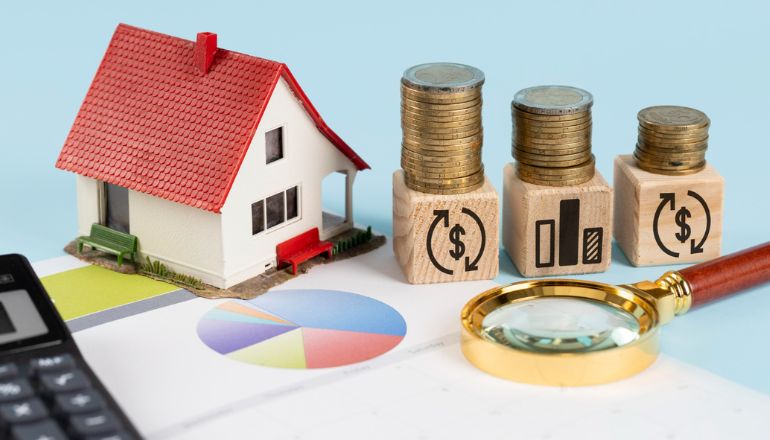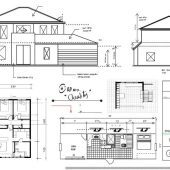How to Find Market Value of Home Without Guesswork

When buying or selling a home, understanding its true worth is essential. If you’re wondering how to find market value of a home, you’re not alone. Many homeowners rely on guesswork or outdated information, but with the right approach, you can determine a home’s value with confidence whether you’re setting a price or making an investment. Let’s break down how to do it accurately and without the uncertainty.
What is Market Value and Why Does It Matter?
Market value is the price a buyer is willing to pay for a home in today’s market. Unlike a listing price, which is set by the seller, or an appraised value, which is determined for loan purposes, market value reflects real demand and current trends.
Knowing your home’s market value helps you:
- Price it right if you’re selling
- Avoid overpaying if you’re buying
- Refinance smartly based on equity
- Plan ahead for property taxes or investments
Without an accurate market value, you risk leaving money on the table or scaring off potential buyers.
Understanding the Factors that Influence Market Value
If you’re wondering how to find market value of a home, you need to understand what affects it. Several key factors influence how much a buyer is willing to pay, including:
- Location: A home in a desirable neighborhood, near good schools and amenities, typically holds more value.
- Home Condition: Updated kitchens, modern features, and well-maintained spaces can boost market value.
- Comparable Sales (Comps): Recent sales of similar homes in the area help set a realistic price range.
- Market Trends: A seller’s market (high demand, low inventory) can drive prices up, while a buyer’s market does the opposite.
- Economic Conditions: Interest rates, job growth, and overall economic health impact home values.
Each of these factors plays a role in determining the true worth of a property. Next, let’s look at the best ways to calculate market value without relying on guesswork.
How to Find Market Value of a Home: Step-by-Step Process
Finding your home’s market value doesn’t have to be a guessing game. Here’s a simple, step-by-step approach to get an accurate estimate:
- Check Recent Sales (Comps): Look at homes similar to yours that have sold in the past three to six months. Pay attention to size, location, and condition.
- Analyze Active Listings: While listings don’t define market value, they show pricing trends and competition in your area.
- Use Online Valuation Tools: Websites like Zillow and Redfin offer automated estimates, but take them with a grain of salt they rely on algorithms, not in-person assessments.
- Consult a Real Estate Agent: A local expert can provide a Comparative Market Analysis (CMA) with insights beyond online tools.
- Hire an Appraiser: If you need a precise valuation especially for selling, refinancing, or legal matters an appraiser gives an unbiased, professional assessment.
- Factor in Market Trends: Consider interest rates, supply and demand, and seasonal shifts that can affect pricing.
By following these steps, you’ll get a clear, data-backed market value no guesswork needed.
Additional Tips for Accurately Determining Your Home’s Market Value
Even after following a step-by-step process, there are extra ways to ensure you’re getting the most accurate estimate. If you’re still wondering how to find market value of a home with confidence, consider these tips:
- Look Beyond Online Estimates: Automated tools are a good starting point, but they don’t account for unique features, renovations, or neighborhood nuances.
- Adjust for Home Improvements: Major upgrades like a new roof, remodeled kitchen, or energy-efficient windows can increase value, while outdated features may lower it.
- Consider Seasonal Trends: Home values can fluctuate depending on the time of year. Spring and summer often see higher prices due to increased demand.
- Talk to Multiple Experts: A real estate agent, an appraiser, and even local investors can provide different perspectives on your home’s worth.
- Stay Updated on Market Conditions: Interest rates, economic shifts, and housing supply can all impact what buyers are willing to pay.
Taking these extra steps will help you determine the most realistic market value for your home without second-guessing.
Common Mistakes to Avoid When Estimating Home Value
Even with the right tools and research, many homeowners make critical mistakes when estimating their property’s worth. Avoid these common pitfalls to ensure an accurate valuation:
- Relying Only on Online Estimates: Automated tools can be misleading since they don’t factor in unique upgrades, neighborhood trends, or market shifts.
- Ignoring Comparable Sales (Comps): Not all homes are priced correctly. Make sure to compare recent sold prices, not just listed ones.
- Overvaluing Home Improvements: While upgrades can increase value, they don’t always provide a dollar-for-dollar return. A $50,000 kitchen remodel doesn’t automatically mean your home is worth $50,000 more.
- Letting Emotions Skew Pricing: Personal attachment can cloud judgment. Buyers see your home as an investment, not as a collection of memories.
- Not Considering Market Conditions: Economic trends, mortgage rates, and seasonal shifts all impact demand and pricing.
- Forgetting to Factor in Location: Even similar homes can have different values based on school districts, crime rates, and access to amenities.
Conclusion: Finding the True Market Value of Your Home
Determining your home’s market value doesn’t have to be a guessing game. By analyzing recent sales, considering local market trends, and consulting professionals, you can get an accurate estimate. Comparable sales and market conditions provide a solid foundation, while online tools offer a starting point but shouldn’t be your only source. A real estate agent or appraiser can give expert insights that account for unique property features and market shifts. Avoid common mistakes like emotional pricing or overestimating the value of home improvements. With the right approach, you’ll confidently find your home’s true market value whether you’re selling, buying, or refinancing.
FAQs
What is the difference between market value and appraised value?
Market value is the price a buyer is willing to pay for a property in the current market, while appraised value is an estimate provided by a licensed appraiser for purposes like securing a mortgage.
Can home improvements increase my home’s market value?
Yes, certain improvements like kitchen remodels or adding energy-efficient features can enhance your home’s market value, but the return on investment varies.
How often should I assess my home’s market value?
It’s advisable to evaluate your home’s market value annually or before significant financial decisions like selling or refinancing.














Really helpful! Do market value estimates usually differ a lot between appraisers and real estate agents, or are they typically close?
Just read that in some cities, AI-powered valuation tools are becoming more accurate thanks to machine learning, interesting shift for homeowners.
Great article. I’d add that getting a CMA from two different agents helped me feel more confident about my home’s true value.